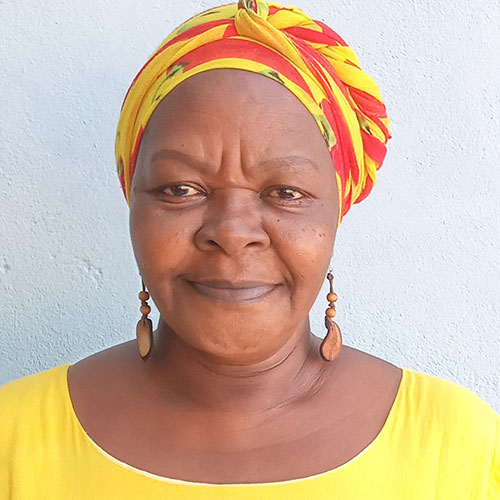With reports from mothers and researchers, documentary sheds light on forced disappearances in the country
Despite the alarming numbers, forced disappearance is not considered a crime in Brazil


Filmed in the city of Nova Iguaçu, in Rio de Janeiro, the documentary “Desova” had its premiere on October 10th at the region’s SESC. The short film presents alarming data about people who disappeared and still disappear forcibly in Baixada Fluminense.
It’s a moving film with heavy scenes and it brings testimonials from mothers who organized themselves into collectives and art therapy groups to deal with the pain of absence. In addition, there are testimonies from researchers and experts from the Universidade Federal Rural do Rio de Janeiro (UFRRJ) and other scholars who carry out research focused on the subject.
The short film seeks to understand the dynamics of forced disappearances of people, which include State techniques for disappearing with victims’ bodies and shows how mothers and family members deal with trauma.
At the end of the screening there was an emotional debate in which Lais Dantas, director of the film, participated; Josiane Martins, member of the group Filhos nos Braços do Pai; José de Souza Alves, professor at UFRRJ and Adriano Araújo, executive coordinator of Fórum Grita Baixada (FGB).
Pressure for change
“Despite the seriousness of the problem, forced disappearance in Brazil is not considered a crime. We and society as a whole need to put pressure on public authorities, which are violating agents, on parliamentarians and public managers so that we can pass the law that classifies forced disappearance as a heinous crime. If there is legislation, we will be able to have statistics, produce data and thus, we will be able to think about a public policy to prevent and combat this situation”, says Adriano Araújo, during the debate.


Short Desova: feeling of the debut at home
In an interview with Coluna da Neuza, Lais Dantas tells us how she felt having the film shown in Baixada Fluminense.
“It was very significant that the national premiere of the film took place here in Baixada Fluminense and with a theme that crosses this territory. I was telling some people here earlier that the film took place today. I know it’s in some festivals and won an award in Argentina, but in fact, I saw the film happen here, today; with people seeing each other, identifying themselves.”
“This thing of being able to see yourself on screen, of having your story told by a person who was also born and raised in Baixada, is very important. It’s a tough topic, very heavy and one that touches me in very peculiar places. It was very powerful and I’m very happy,” she finishes.
Setbacks when filming in Baixada Fluminense
Below, Fábio Leon, communications advisor at Fórum Grita Baixada, talks about the difficulties faced by the recording team during filming.
“There were many difficulties reported, in the sense of having to film in locations that were known by the community as dumping points for bodies. So, the fact that you are in places known as death scenes has a whole morbid dimension in relation, not only to the disappearances, but also to the clandestine cemeteries that are around rivers and vacant lots”.
“In a physical sense, the team had difficulties transporting the equipment to these places, and filming and interviewing the mothers was another challenge, as it is not an easy task to interview women whose loved ones were victims of such brutal violence.”
“Another challenge was the responsibility of working this narrative in places dominated by drug trafficking and militias and, therefore, I believe they must have had several protection strategies because filming in the territory where they filmed is a risk to the physical integrity of any person”, says Fábio Leon.
Next steps for the short film Desova
Finally, Adriano Araújo informs that now, the intention is to hold exhibitions, free of charge, for groups such as residents’ associations, NGOs, public or private schools, non-profit institutions, research centers, in short, any group.
To have the film shown at the institution you participate in, simply contact the coordinators of Fórum Grita Baixada or the production company Quiprocó Filmes, communicate your desire and wait for confirmation.
At the end of each screening there will always be a political debate on the film’s theme.
Follow the Forum on Instagram.
Read the article about the Grita Baixada Forum by clicking here.



